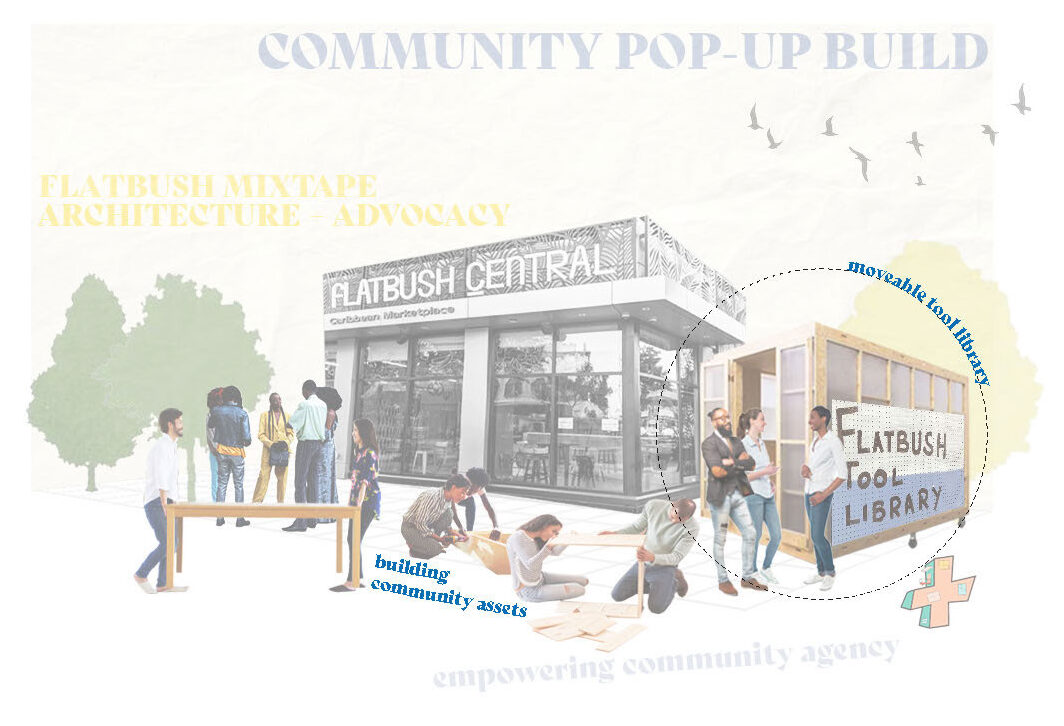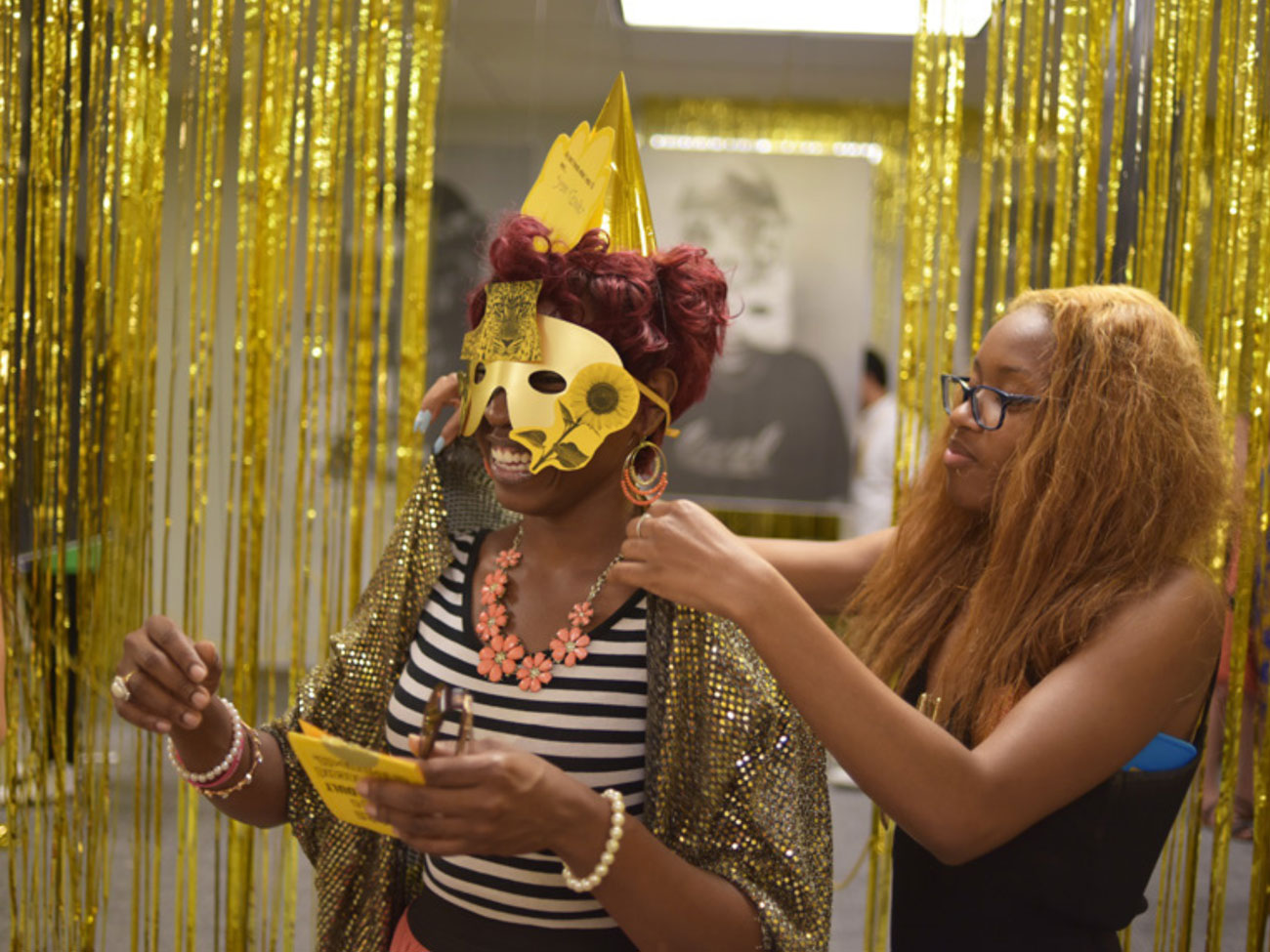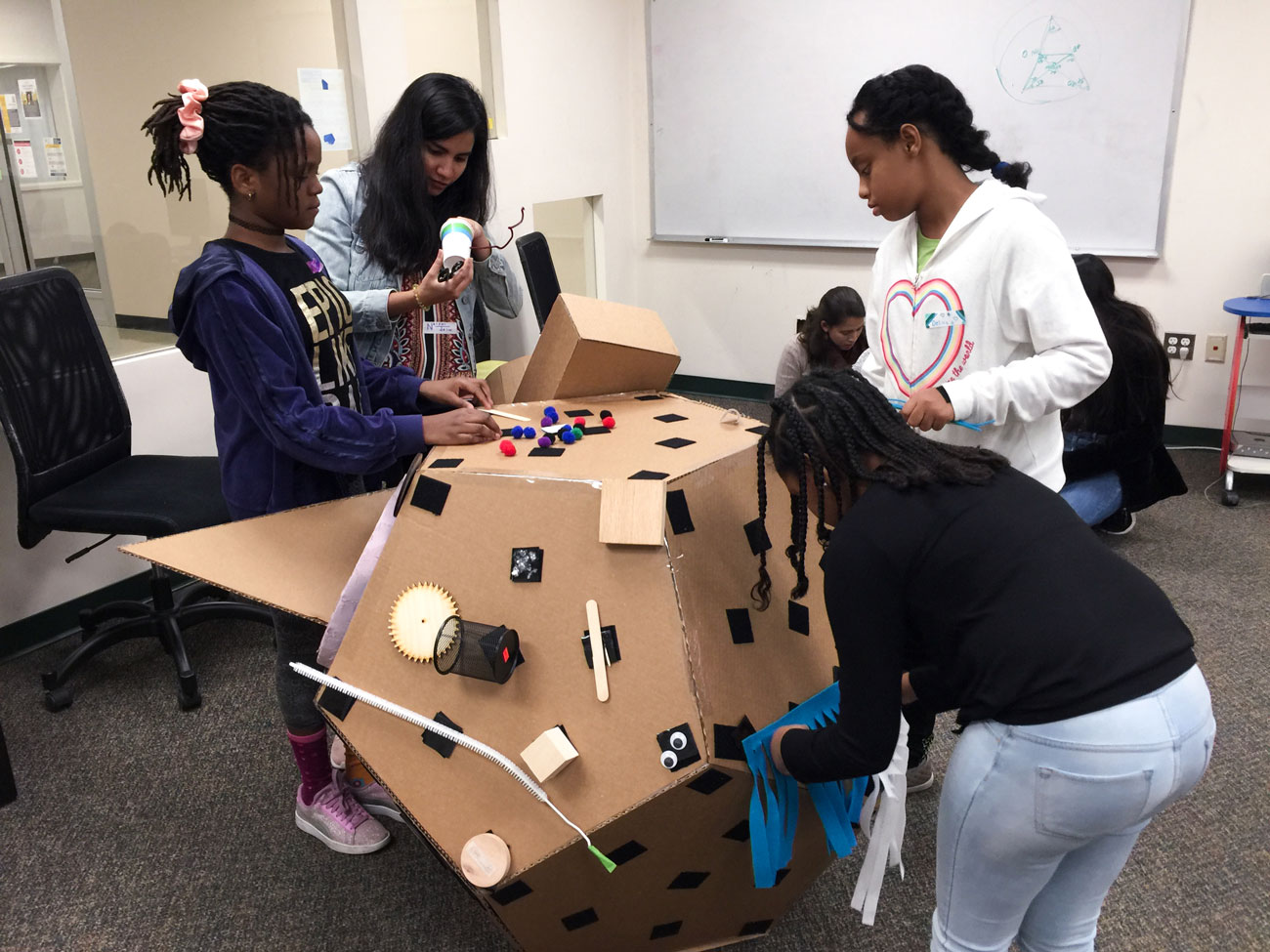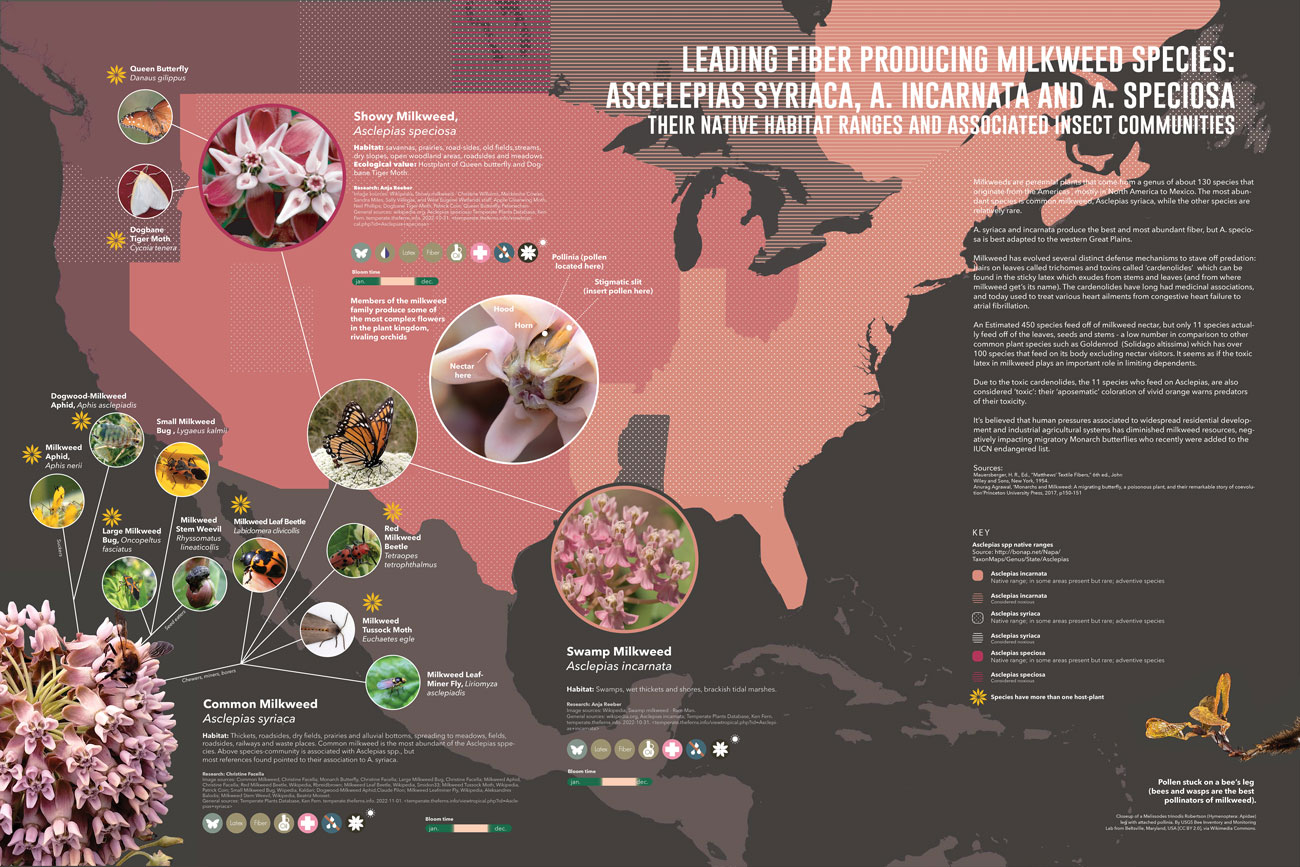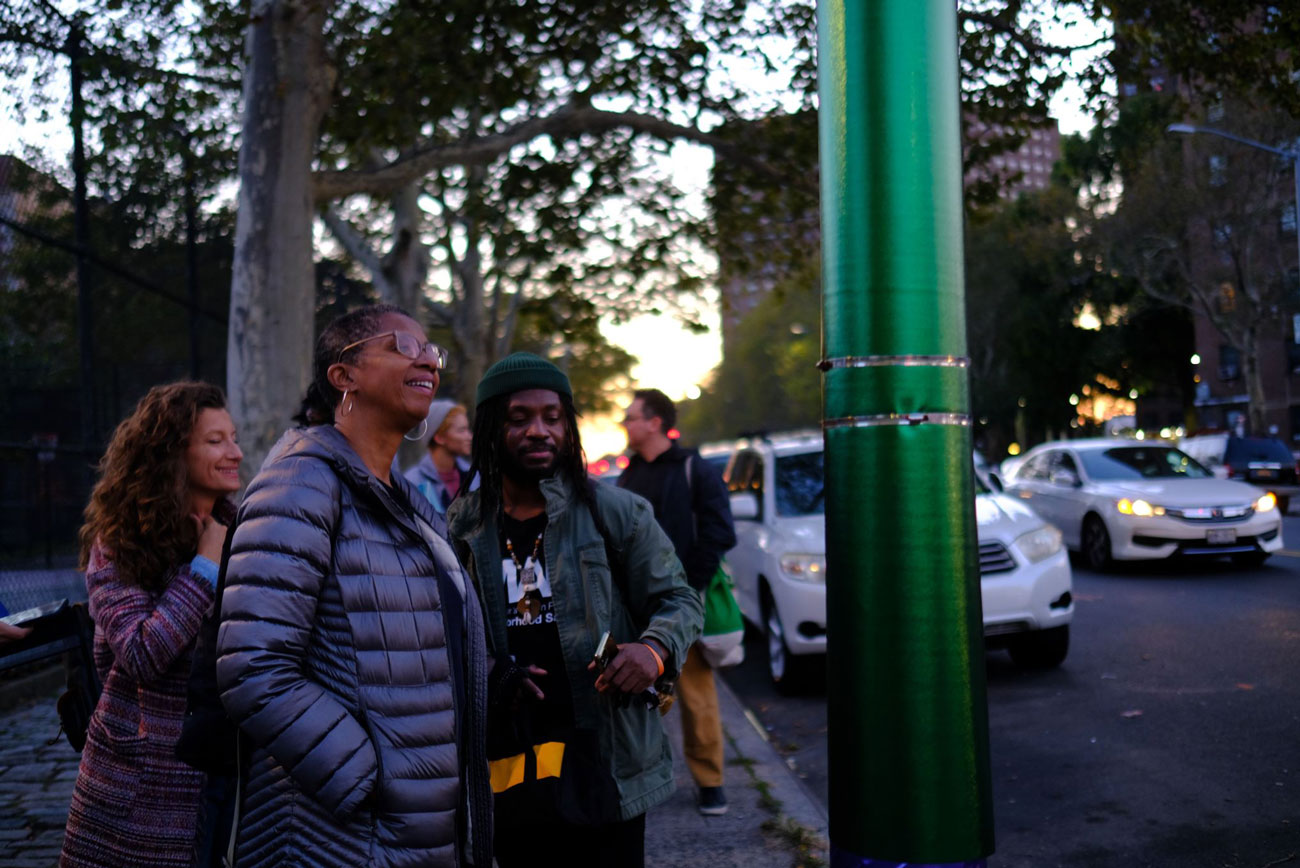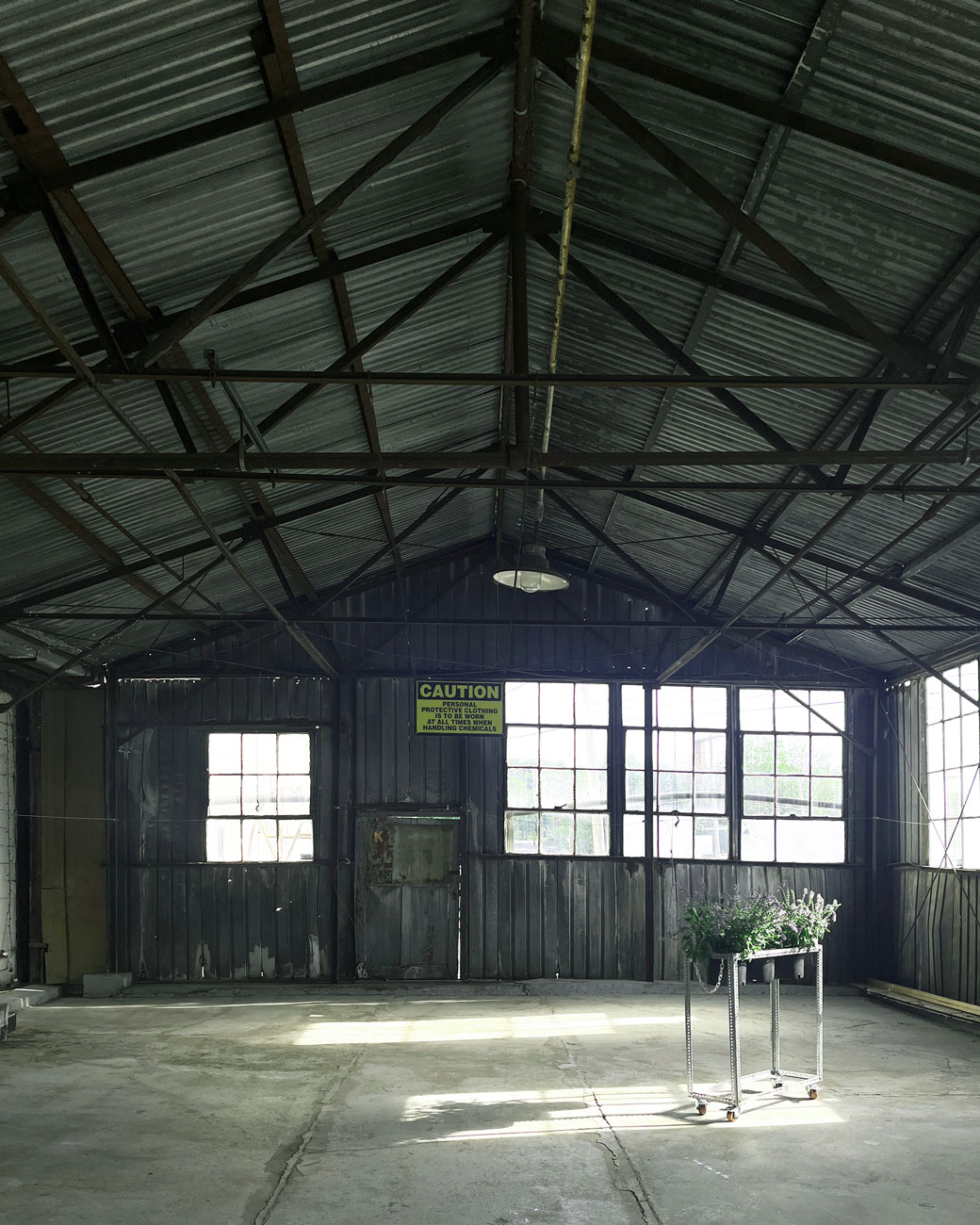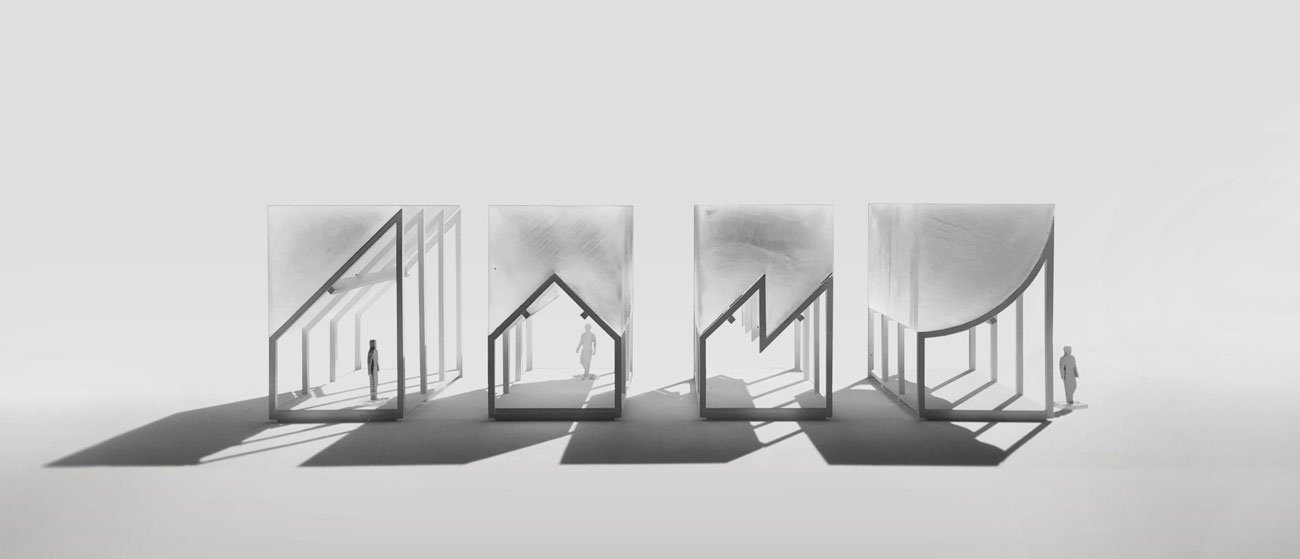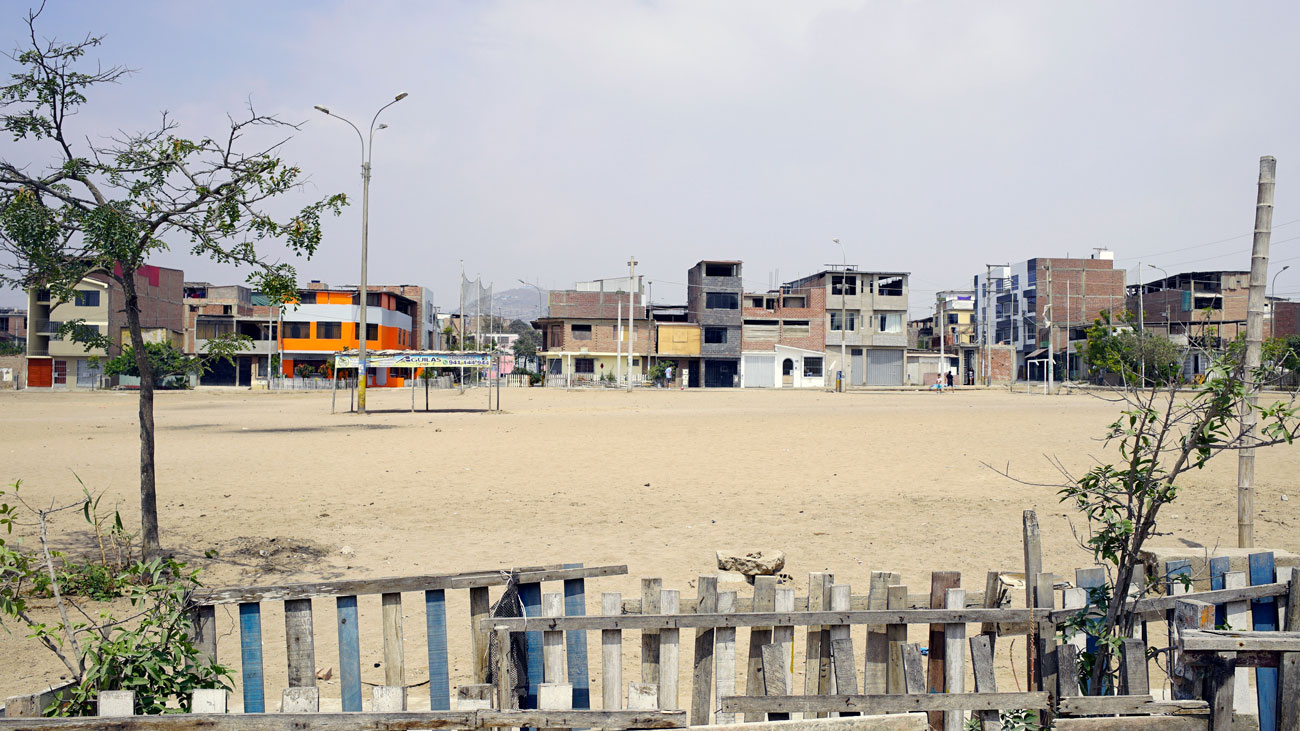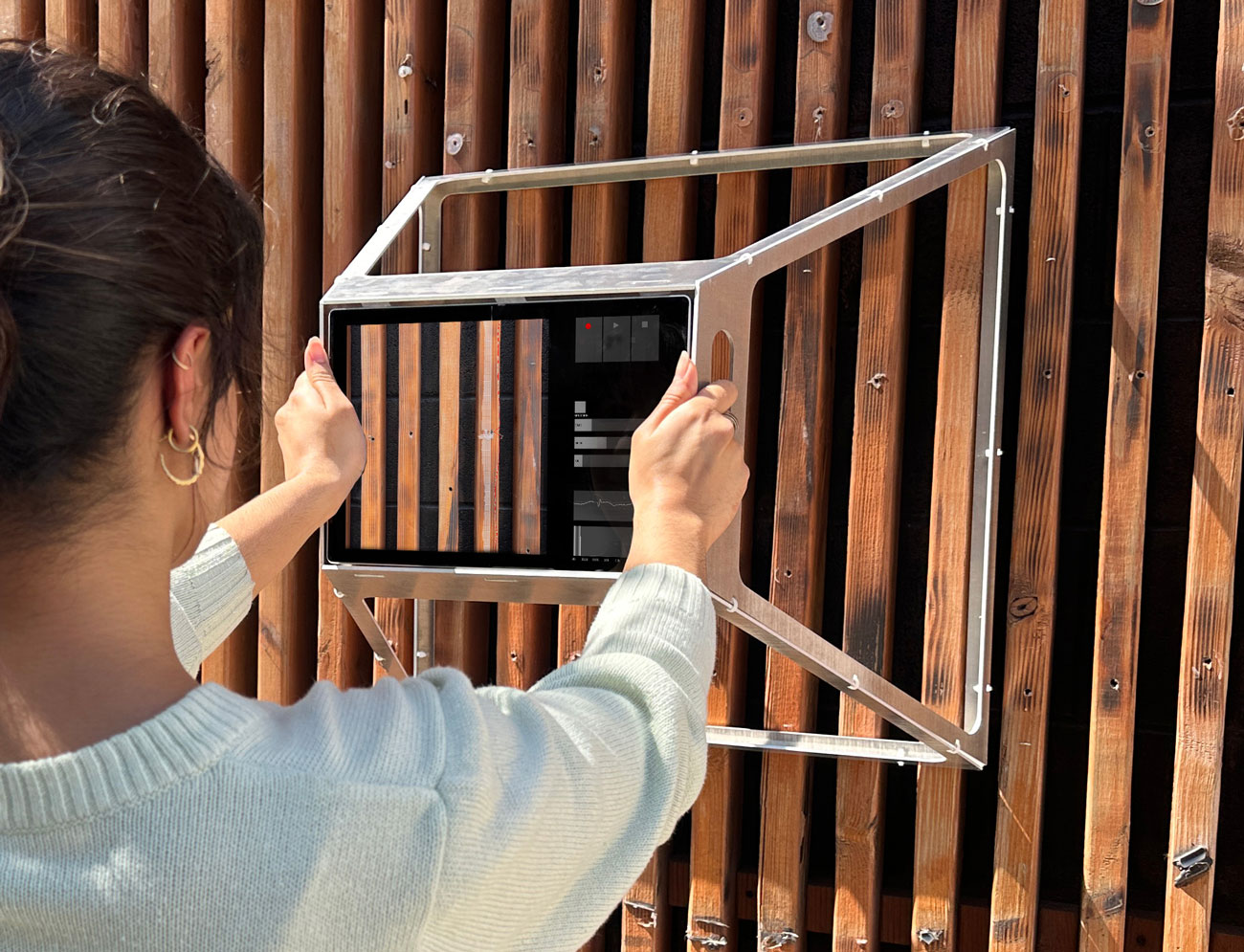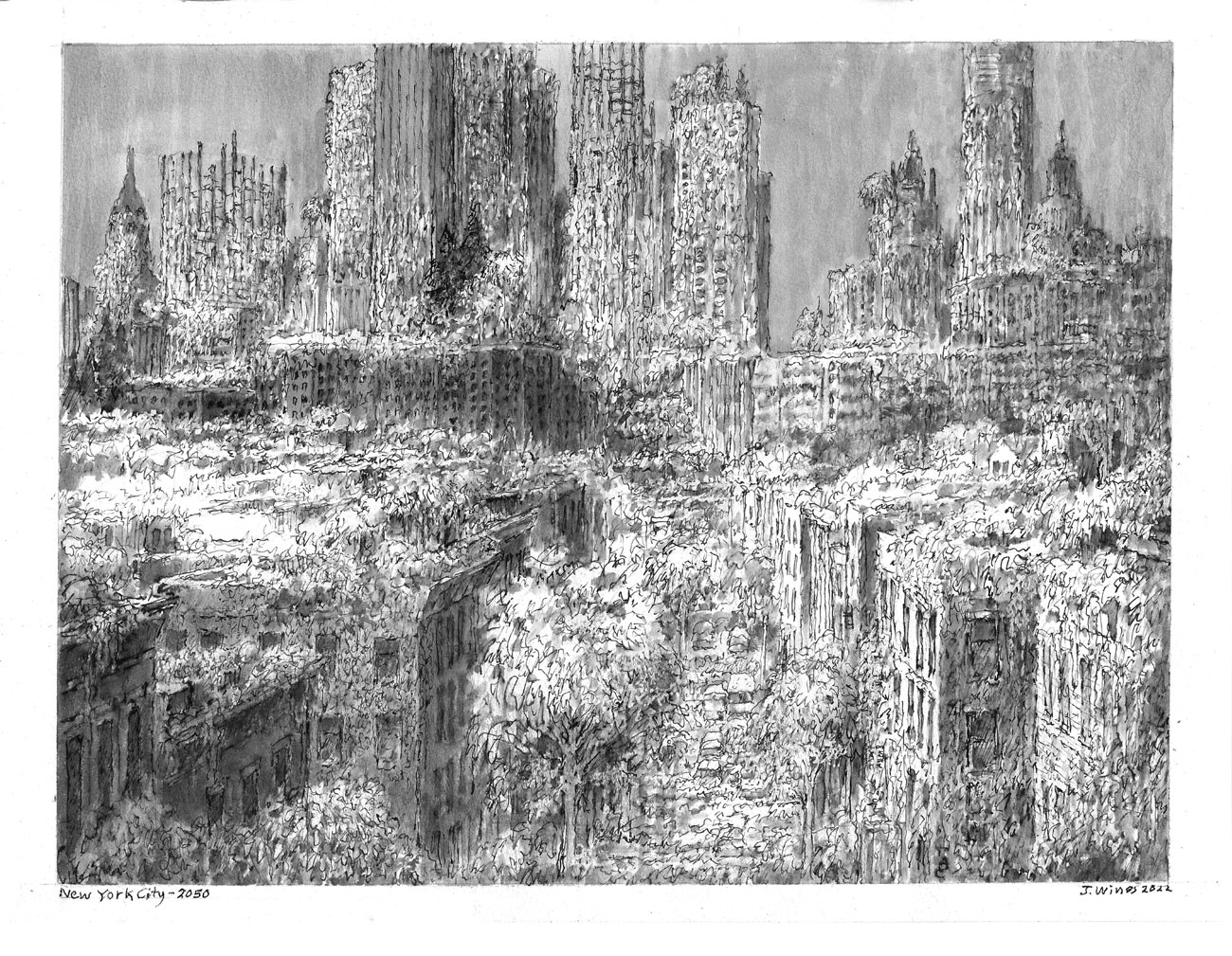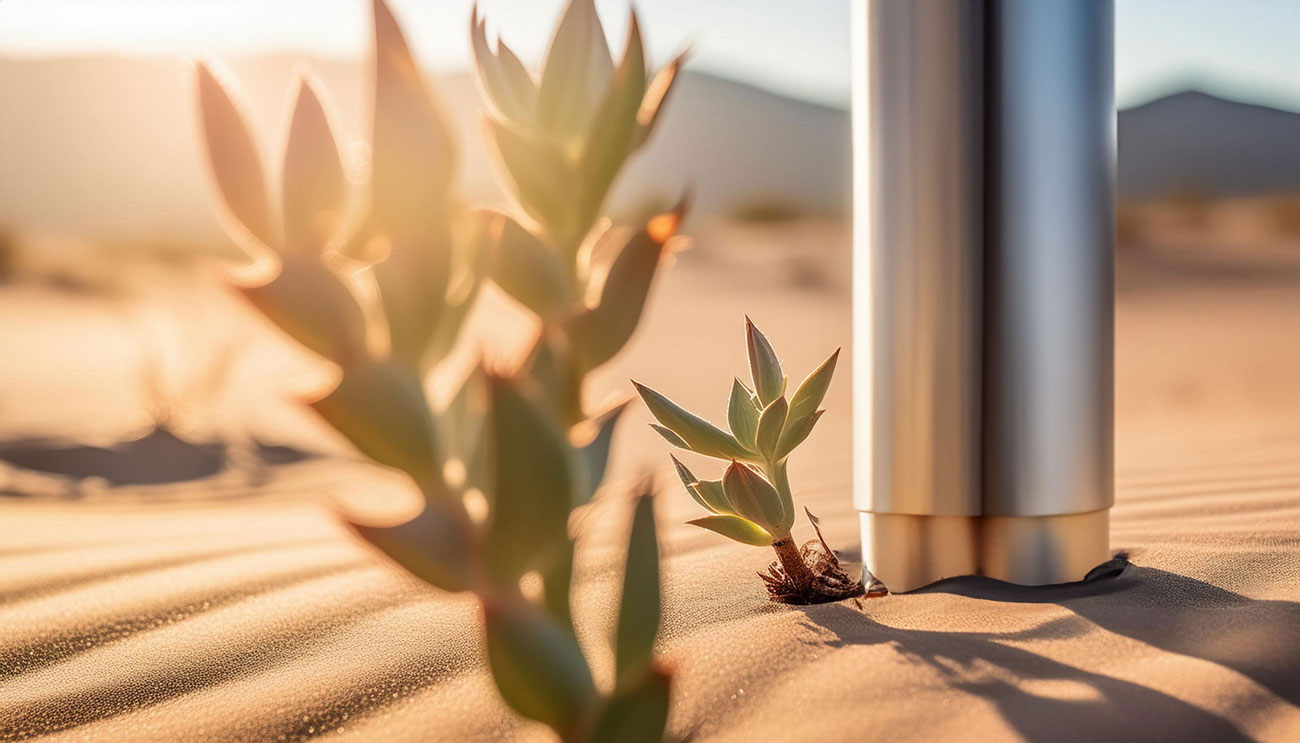2023 Architecture + Design Independent Projects Grant Recipients
In the second year of the League’s Independent Projects partnership with NYSCA, 25 design proposals were selected for grants of $10,000 each.
The Architectural League of New York and The New York State Council on the Arts are pleased to announce the recipients of Independent Projects grants in 2024. Encompassing a range of design disciplines and engaging locales throughout New York State, these 25 proposals have been selected by a panel of design experts to receive grants of $10,000 each.
Independent Projects is a competitive grant program that is open to New Yorkers who work in any of the design fields. Jointly administered by the League and New York State Council on the Arts (NYSCA), Independent Projects supports self-generated projects in design practice and research that seek to answer the question: Where can design go next? Grants are made possible by NYSCA with the support of the Office of the Governor and the New York State Legislature.
In the 2024 cycle, 120 applications were submitted for year-long creative and research projects. A panel of 10 designers and educators, who are active in the fields of architecture, landscape architecture, industrial design, fashion, materials research and fabrication, history and preservation, graphic design, and community-centered design, evaluated the proposals to select 25 projects for funding. Representing an array of locales, disciplines, formats, and modes of practice, the selected projects demonstrate the potential for creative innovation and exemplify the program’s goal of making design accessible to the communities of New York State.
The Independent Projects grant program will be offered again in 2025. Please visit the League’s website and follow our newsletter and social media channels for future announcements and details about the next application cycle.
Architecture + Advocacy: Building Agency with Communities through Community-Led Design Builds and Public Space Activations
Abriannah Aiken, Bryce Emerson, Yuna Li, and Kelsey Jewel Jackson
New York, NY
This collaboration with Flatbush Mixtape will alter the systems of design by putting the tools and knowledge for spatial change in the hands of community members, empowering them to collectively dream and create together. A “moveable tool shed” will be created alongside a “modular tool kit” that the Flatbush community will use to produce their own creations to meet the neighborhood’s needs and desires, co-designing an equitable built environment together.
A series of community activations and community-led design builds throughout Flatbush will offer tools for any person with a dream of improving their physical environment to do so. Image credit: Abriannah Aiken, Bryce Emerson, Yuna Li, and Kelsey Jewel Jackson
Freeway Futures
Nimet Anwar, Omar Ali, and Thomas Hogge
Syracuse, NY
Syracuse is fractured by the presence of the I-81 Viaduct. As its demolition looms imminent, this interdisciplinary team will work to design scenarios to assess the present condition of the freeway and to identify catalytic solutions for creating a sustainable and livable post-freeway future. This process will culminate in an exhibition and strategic plan that will be disseminated to community collaborators.
An abstraction depicting the pervasive and divisive influence of freeways in American cities. Image credit: Nimet Anwar, Omar Ali, and Thomas Hogge
Objects of Civility
Rachel Barnard
New York, NY
Objects of Civility (OoC) is an iterative design project with the thesis that physical props and tools can assist in fostering productive civility across divided groups. Over the course of 12 months, a series of OoC will be designed, produced, and tested with groups that have high levels of contestation. The project aspires to adapt the OoC to broader contexts and assist in bridging political divides that are increasingly resulting in violence.
An Assistant District Attorney being offered a gown by a participant from the Young New Yorkers program at a courtroom exhibition in the Eastern District Court, 2016. Image credit: Rachel Barnard
The Civic Playground Project
Leighton Beaman
Ithaca, NY
The Civic Playground Project seeks to empower individuals of different backgrounds and abilities to shape their shared built environment through intuitive modes of making and collaborative frameworks of play within civic playground scenarios. The project is centered on the development and deployment of toy-based building kits for architectural exploration designed to engage a diverse community of individuals as a means of real world-building.
Toy-based Architectural Building Kits encourage collaborative design exploration through play. Image credit: Leighton Beaman
Co-Designing the Classroom
Danielle Begnaud
New York and Beacon, NY
Co-Designing the Classroom is a year-long co-design project with a design team made up of children and adults. The design team will use and modify the cooperative inquiry method to investigate increased levels of absenteeism in U.S. schools. As proof of this co-design methodology and the new techniques developed within it, the team will research, ideate, and develop possible design improvements for the school environment that encourage student attendance, confidence, and engagement.
Co-designers at UMD’s Human-Computer Interaction Lab use the new 3D elaboration technique during a cooperative inquiry session, one of the methodologies this project will use to examine increased absenteeism in U.S. schools. Image credit: Danielle Begnaud
Birthing in Alabama: Design and Redesign of Reproduction
Lori A. Brown
New York and Syracuse, NY
Birthing in Alabama is a research and design project about historical, social, and political dimensions of birthing, and engages the inherently political practice of architecture through this study. Consisting of an installation and a mockup of a wall section for the Alabama Birthing Center site, the project will be exhibited at the Cooper Hewitt, Smithsonian Design Museum. The installation makes visible numerous structural inequities creating immense challenges to birthing healthcare across Alabama, and brings the voices of those fighting to improve access into conversation with exhibition viewers at the Cooper Hewitt’s Smithsonian Design Triennial.
Exterior view of a fence for the Alabama Birthing Center, Huntsville, Alabama. Image credit: Lori A. Brown, assisted by Patricia Cafferky
Symbiont Substrates: Bioreceptive Design for Lichens Preservation
Nancy Morgado Diniz
New York, NY
This project articulates methods to promote environmentally resilient material solutions that address the need to preserve ecosystems and biodiversity under conditions of extreme climate and material scarcity. The project will present a method to create a bioreceptive material that promotes the growth of lichen communities that are habitats of biodiversity and are widely known for their capacities of carbon sequestration and monitoring of air pollution and environmental change.
Warm, Fuzzy, Toxic: Milkweed Softgoods for the Nomadic New Yorker
Christine Facella
New York, NY
This project will prototype a bedroll created out of local and repurposed resources, including milkweed fiber and textile waste generated by New York City’s Garment District. The bedroll is intended for New York City day-trippers, but will also serve as a tool to communicate the benefits of milkweed fiber to designers, as an alternative to polyester or conventional cotton that supports the threatened monarch butterfly and can be cultivated in degraded—including urban—soils.
Research panel describing the three different species of milkweed that are best suited for fiber production, alongside their more-than-human community members. Image credit: Christine Facella
Groundbound Narratives
Daniel Hall and Aelitta Gore
New York, NY
Understanding the ground as a dynamic material amalgamation of geological, biological, and man-made systems, both horizontally and vertically intertwined, Groundbound Narratives will explore new modes of drawing and animation as the basis for designing a groundscape that cuts through a toxic superfund site in Greenpoint, Brooklyn. The explorations will interweave existing conditions with experimental floor detailing drawn with 1:1 specificity to form a deeper understanding of the seen and unseen.
The Northeast Biobased Material Atlas
Kaja Kuehl
New York, NY and Upstate Regions
The Northeast Biobased Material Atlas is an investigation into the building sector and construction supply chain of the American Northeast, which seeks to study and advance the use of biological construction materials based in the region’s forests, farmland, and settlements. Using a combination of mapping, data visualization, and architectural design, the Atlas will present a richly illustrated call to scale locally sourced regenerative materials and circular techniques for future construction in order to meet the region’s housing and climate goals.
Romantic Urbanism: Centering Love in the Built Environment
Daphne Lundi and Louise Yeung
New York, NY
Romantic Urbanism is an investigation of the features of cities that help to foster love and social cohesion. Research increasingly shows that feelings of social isolation and loneliness are on the rise in the United States, yet the pursuit of familial, platonic, and romantic love is not often centered in urban design or planning. Through design activations, essays, and visuals, this project will explore the ways that cities can build infrastructures of love and care.
Woven by Design
Mindy Magyar
Rochester, NY
Woven by Design is a forthcoming collection of Native American designed furniture to be exhibited in a solo show at University Gallery, Rochester Institute of Technology, in Rochester, New York. The collection will integrate traditional Mi’kmaw black ash basketry techniques with archetypal furniture forms to communicate a contemporary Native American presence and perspective within industrial design. Grounded in Mi’kmaw traditions, the work will also support the cultural revitalization of black ash basketry.
Toxic Assets, Seeing Like a Land Bank
Jesse McCormick and Betsy Clifton
New York and Hudson, NY, and Statewide
Toxic Assets is an exhibition hosted by and in collaboration with Citygroup Architecture Collective, designed to synthesize and translate the history, activity, politics and potential futures of Land Banks to an architecture and architecture-allied audience.
On Deck: Architectural Production After PowerPoint
Christina Moushoul, Matthew Wagstaffe, and Brunno Douat
New York, NY
The research project and exhibition On Deck: Architectural Production After PowerPoint addresses the overlooked impact of slide presentations on architectural production. Drawing from media, design, and communication theory, and focusing on a selection of New York-based practices over the past four decades, it seeks to demonstrate how this always-present medium—often presented in private or confidential settings—has influenced contemporary architectural conceptualization and communication.
Beyond Memorial Sacred Sites IV
Immanuel Oni
New York, NY
Beyond Memorial Sacred Sites IV is a design, spatial, and healing justice response to the invisible yet palpable scars left in spaces after community trauma and loss. The project will work with the Brownsville Keepers youth peace-keeping group (ages 16-24) at the Brownsville Community Justice Center to reclaim underutilized and unsafe spaces using nighttime activations in Brownsville adjacent to NYCHA public housing.
Community members on the second Sacred Sites walking tour led by Brownsville youth in 2023. Image credit: Destiny Mata
The Place Where You Belong: Contributing to Public Space in the Pines
Davis Owen and Francis Aguillard
Fire Island Pines and New York, NY
Fire Island Pines—the famed queer summer destination—has long offered tolerance and a strong sense of community. As visibility of this boardwalk enclave has grown, so has awareness of its precarity, be it ecological, cultural, or otherwise. Designer Francis Aguillard and architect Davis Owen will develop an exhibition on the potential for the island’s public spaces, raising discussion on the nature of belonging and on belonging in nature.
Buffalo Architecture: An Alternative Guide
Maia Peck, Gregory Serweta, and Leonardo DiBella
Buffalo and New York, NY
Buffalo Architecture: An Alternative Guide is a digital platform that seeks to highlight spaces and structures in Buffalo, New York, that have been historically overlooked or marginalized in the city’s architectural canon. The project will develop an interactive website and mobile app as an educational resource to the public. Centering Black architecture, a pilot version will be presented during a public workshop and advertised through guerrilla marketing tactics on public realm infrastructure.
A digital platform will explore historically marginalized and underrepresented architecture in the City of Buffalo, NY. Image credit: Maia Peck and Gregory Serweta
In-Process: Alternative Methods in Reading Evolving Buildings
Laura Salazar, Pablo Sequero, Ayesha Ghosh, Edgar Rodriguez, Magdalena Valdevenito, Lauren Scott, and Rocio Crosetto
Syracuse, NY
In-Process is an exhibition to be housed in a 150-year-old factory in Syracuse, New York, along the former Erie Canal, as a demonstrative site and case study for documentation, intervention, and public engagement. The exhibition will display how to read and revitalize existing building stock in post-industrial cities, inviting visitors to engage with strategies of continual adaptation and collective narratives in their own built environments.
The exhibition will be held in “the shed,” a 1930s addition to the historic GereBlock building in Syracuse, NY. Image credit: Magdalena Valdevenito
Architectural Prototypes for Social Infrastructure and Cultural Equity
Amy Shell and Manole Voroneanu
Newburgh and New York, NY
Pavilion by day and cinema by night, the Cinemabox prototype aims to expand access to and representation within the City of Newburgh’s arts and culture programming by creating a multimedia timeshare allowing diverse storytellers, artists, and daily users to share their work and host community-engaged initiatives.
Early study models of the prototype as distinct geometric shapes based on a steel frame and a polycarbonate attic. The leftmost prototype is currently in fabrication. Image credit: Amy Shell and Manole Voroneanu
Self-Help Housing: An Atlas of Agency
Cassim Shepard and Carsten Rodin
New York, NY
Self-Help Housing: An Atlas of Agency is an online, interactive documentary project that maps a diverse series of late 20th-century architectural and urban development schemes that sought to activate the agency of residents to help solve their own housing challenges. By identifying philosophical and architectural connections between them, the project highlights an under-studied period of experimentation in housing policy and design with many lessons for our precarious present and future.
Resident-built housing in Villa El Salvador, Lima, Peru, December 2023. Image credit: Cassim Shepard
Material Samples
Michael Szivos
New York, NY
Material Samples will utilize a field device combining custom-built software and hardware to record live video and 3D data of elements of the built environment and convert the data into sounds. A dedicated web archive of translated audio samples and open-source files will connect designers to a network of people building a real-time sample library. In a world we often experience mediated through digital devices, the project speculates on how technology can expand and enhance our sensory perception of the built environment by translating it from one medium to another.
The custom-built field device converts live videos and 3D scans of urban materials into sound. Image credit: Michael Szivos
What Else Could It Mean? Writings and Drawings with James Wines
James Wines, Suzan Wines, and Phillip Denny
New York, NY
What Else Could It Mean? Writing and Drawing with James Wines is a book and video series introducing new audiences to SITE’s fifty years of engagement with the public realm through projects, drawings, lectures, and essays by the American architect and designer James Wines. Topics include environmental thinking and education. The book and web-based videos aim to foster interdisciplinary creative collaboration for the next generation of designers while forming an archival record of the practice.
James Wines, Nature’s Revenge: NYC 2050, View from the Lower East Side. Pen & ink wash. 2022. Collection of The Art Institute of Chicago. Image courtesy of SITE.
A Biodesign Prototype That Generates Fresh Water
Peter Yeadon
New York, NY
Recognizing access to water as a critical global issue, especially in arid and vulnerable regions, this biodesign project aims to develop and prototype an innovative atmospheric water generator (AWG) using a hygroscopic biocomposite material. The final prototype will undergo field testing and public demonstration, proposing a sustainable solution to water scarcity through biodesign innovation.
The atmospheric water generator uses a hygroscopic biocomposite to convert arid air into liquid water. Image credit: Peter Yeadon
“Chinatown is Chinatown; Flushing is China”: Defining Chinese Diasporic Urbanism in Emerging Chinatowns
Shurui Zhang and Zihao Zhang
New York, NY
The project will document, analyze, and characterize “Chinese diasporic urbanism” by investigating two 21st-century emerging “Chinatowns” in Queens: Flushing and Long Island City. The project will study these two places through observations, interviews, mappings, and architectural drawings to produce a final exhibition and online visual archive. The resulting work seeks to expand and contribute to studies on migration and the built environment, supporting efforts in equity and inclusivity in design professions.
Long Island City attracted young Asian Americans who could afford the high price of living. With the 7 trains connecting LIC and Flushing, they can live and work among the high-rises while the nostalgic hometown experience is only a subway ride away. Image credit: Shurui Zhang and Zihao Zhang
Jugoplastika: Women, Plastics and a Factory that Defined a Nation
Dragana Zorić
New York, NY
This project will produce an exhibition about Jugoplastika, a plastics factory created for and run by women, operational in Split, former Yugoslavia, from 1952 to 2000. Designed by the prolific architect Lovro Perković, the Jugoplastika building employed innovative construction techniques that mirrored the factory’s transformative labor model, and its ubiquitous manufactured products came to define the Yugoslav lifestyle and its new society. The exhibit will explore the architectural and social impact of the factory and offer lessons for socially responsive design across different eras and political and geographical contexts.
Landon Brown
Principal, Onland Architecture
New York, NY and Catskills Region
Yvette Chaparro
Director, MFA Industrial Design Program and Assistant Professor of Product and Industrial Design, School of Constructed Environments, Parsons School of Design
New York, NY
Naika Colas
Founder, Jacques Louis, and Assistant Professor of Fashion Design, School of Fashion, Parsons School of Design
New York, NY
Azra Dawood
Andrew W. Mellon Curator of Academic Programs, Vassar College
Poughkeepsie, NY
Cathryn Dwyre
Principal, Pneumastudio
Hudson, NY
Aleksandr Mergold
Founding Partner, Austin + Mergold and Associate Professor of Architecture, Hillier College of Architecture and Design, NJIT
Ithaca, NY
Erkin Özay
Associate Professor and Associate Dean for Academic Affairs, University at Buffalo School of Architecture and Planning
Buffalo, NY
Max Piersol
Assistant Professor of Art and Architecture, Hobart and William Smith Colleges
Geneva, NY
Elsa Ponce
Principal, Studio Elsa Ponce
New York, NY
Alexander Tochilovsky
Director, The Herb Lubalin Study Center of Design & Typography, The Cooper Union
New York, NY
The 2024 Independent Projects grant program is made possible by the New York State Council on the Arts with the support of the Office of the Governor and the New York State Legislature.

In the second year of the League’s Independent Projects partnership with NYSCA, 25 design proposals were selected for grants of $10,000 each.
In the first year of the League’s Independent Projects partnership with NYSCA, 18 design proposals were selected for grants of $10,000 each.
